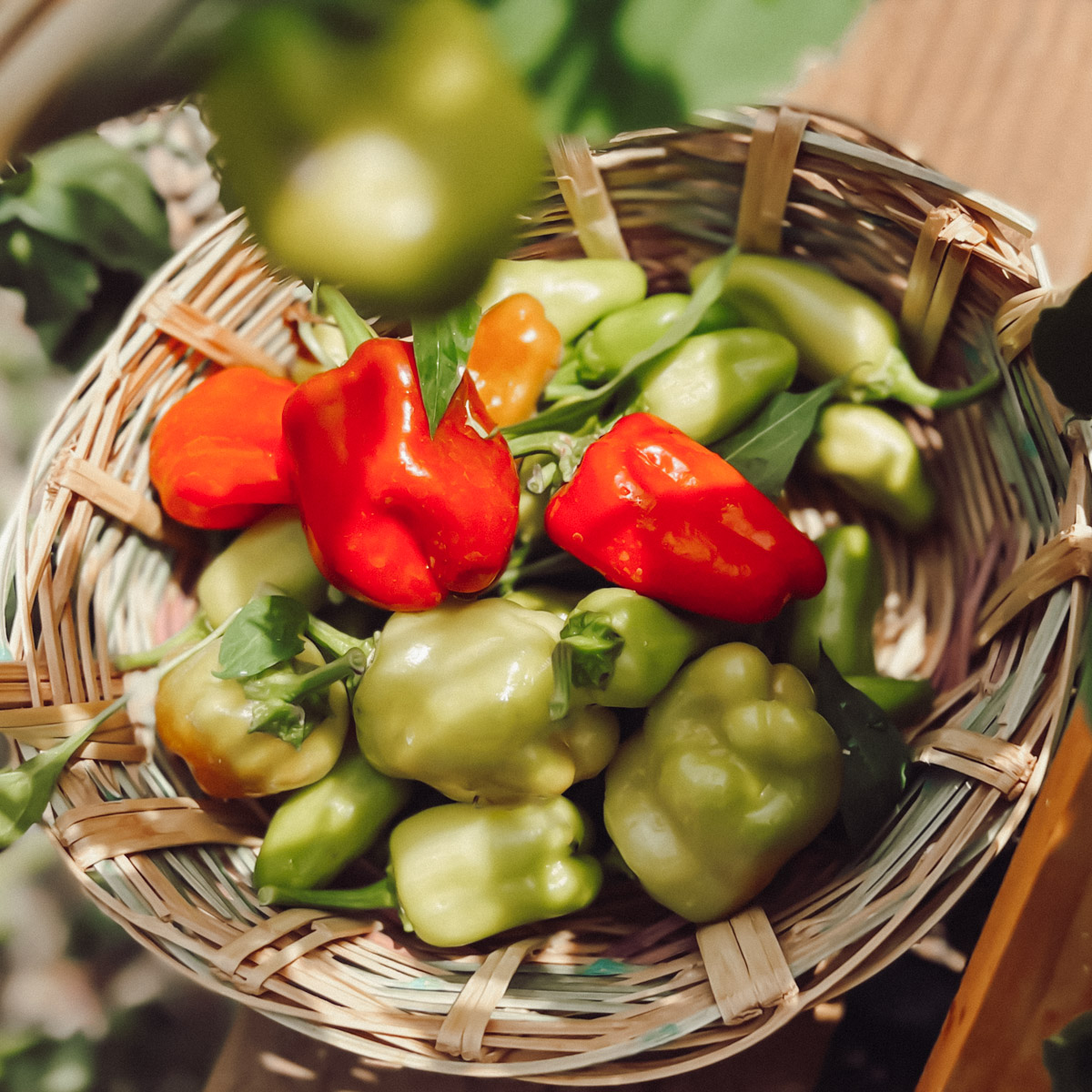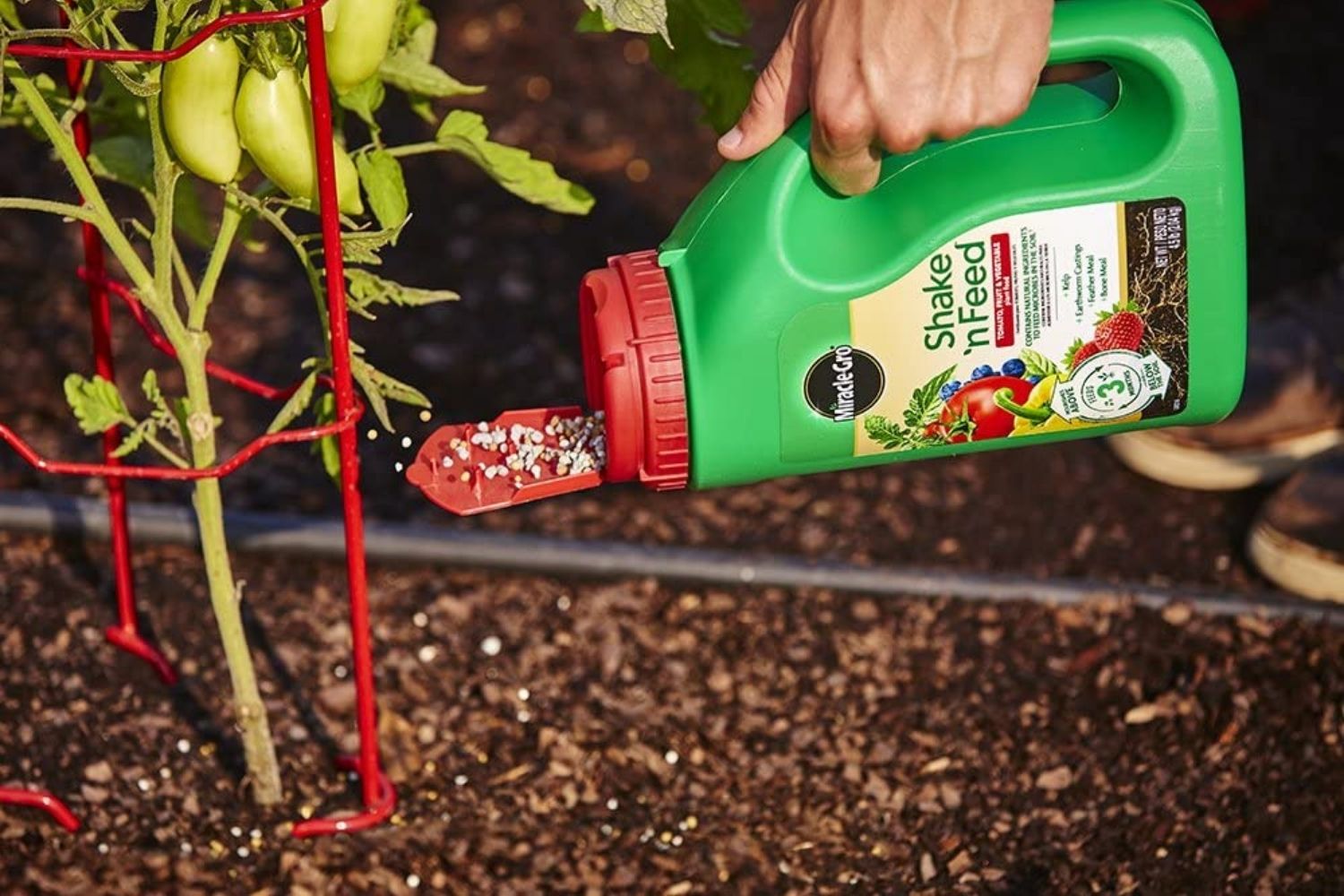Find Out the Best Fertilizers for Peppers: Top Picks for Optimal Growth
Find Out the Best Fertilizers for Peppers: Top Picks for Optimal Growth
Blog Article
The Ultimate Overview to Feeding Peppers: Enhancing Development and Taste Naturally
As pepper fanatics look for to cultivate robust plants generating delicious fruits, the function of fertilization comes to be extremely important in achieving these objectives. By checking out the advantages of all-natural plant foods, unlocking the keys behind pepper plant nutrient needs, and diving into the world of natural plant food choices, a globe of opportunities emerges for boosting the vitality and taste profile of these precious plants.
Advantages of Natural Fertilizers
Natural plant foods offer a range of advantages that add to the general health and performance of pepper plants. Unlike artificial fertilizers, natural options provide vital nutrients in a type that is conveniently soaked up by the plants, promoting robust development and development. One of the crucial advantages of natural fertilizers is their capability to boost soil structure and fertility with time. By improving the dirt with raw material, such as compost or manure, all-natural plant foods boost its water retention capability and nutrient-holding capabilities, creating a much more hospitable environment for pepper plants to flourish in.
Furthermore, natural fertilizers sustain a active and varied dirt microbiome, promoting useful microbial activity that aids in nutrient recycling and uptake by the plants. This microbial task can aid reduce dangerous virus and illness, decreasing the demand for chemical treatments. In addition, natural plant foods promote lasting soil health and wellness by maintaining a well balanced community underground, which in turn supports the overall wellness and strength of pepper plants over ground.
Comprehending Pepper Plant Nutrient Needs
Having actually developed the benefits of natural fertilizers in improving soil wellness and promoting microbial activity, the emphasis now shifts to comprehending the details nutrient requirements important for optimum growth and flavor in pepper plants.

Understanding the particular nutrient needs of pepper plants is essential for achieving plentiful harvests with superb taste. By offering the appropriate balance of nutrients with organic plant foods or dirt amendments, cultivators can ensure healthy and balanced, energetic plants that create savory peppers throughout the expanding period.
Organic Fertilizer Options for Peppers
In boosting the development and flavor of pepper plants, choosing the proper natural plant foods is a critical consideration. Organic fertilizers use a lasting and all-natural means to nurture pepper plants without presenting hazardous chemicals to the soil and environment.
One more reliable natural fertilizer for peppers is aged manure. Rich in nitrogen, phosphorus, and potassium, aged manure provides a balanced nutrient mix that supports vigorous growth and plentiful fruit production (best fertilizers for peppers). It is essential to utilize well-aged manure to stop melting the plants with excess ammonia
Fish emulsion is a fast-acting organic plant food that provides pepper plants with a fast increase of nutrients. Originated from fish waste, this plant food is high in nitrogen, making it specifically useful throughout the onset of pepper plant growth. Fish emulsion is simple to use and is conveniently soaked up by the plants, promoting healthy and balanced vegetation and solid origin growth.
When picking a natural fertilizer for peppers, think about the particular nutrient demands of your plants and select alternatives that straighten with your horticulture methods and values.
Finest Practices for Fertilizing Pepper Plant Kingdoms
Thinking about the value of visit this site right here choosing suitable natural fertilizers for pepper plants, applying finest techniques for fertilization is important to make certain optimum development and flavor development. look at this site Among the key best practices for feeding pepper plants is to perform a dirt test prior to using any plant foods. This examination will assist establish the particular nutrient demands of the soil and guide you in picking the right type and quantity of plant food. It is also vital to fertilize pepper plants at the best time, generally prior to growing and during key development phases such as flowering and fruit growth.
Another important technique is to stay clear of over-fertilization, as this can lead to nutrient discrepancies, stunted growth, and even plant damages (best fertilizers for peppers). Adhering to recommended dosage directions and not surpassing them is important for the overall health and wellness of the pepper plants. Furthermore, including raw material right into the soil with compost or mulching can assist boost soil structure, water retention, and nutrient availability, promoting healthier pepper plants with improved taste accounts. By adhering to these ideal techniques, you can efficiently nurture your pepper plants and accomplish abundant harvests with remarkable taste and high quality.
Troubleshooting Common Fertilization Issues

pH discrepancy is an additional concern that can influence nutrient uptake in pepper plants. Developing a routine fertilizing schedule and complying with advised application prices can help prevent this issue and make sure healthy and balanced pepper plants throughout the expanding season.
Conclusion
By comprehending the nutrient needs of pepper plants and choosing natural plant food options, gardeners can effectively advertise vigorous and healthy and balanced development. Following best practices for fertilizing pepper plants and troubleshooting usual fertilizing problems can help make sure effective growing of peppers.
By discovering the benefits of all-natural plant foods, unlocking the tricks behind pepper plant nutrient needs, and delving right into the world of organic plant food alternatives, a world of opportunities arises for enhancing the vitality and taste account of these beloved plants.Fish solution is a fast-acting natural fertilizer that supplies pepper plants with a fast increase of nutrients. It is also crucial to feed pepper plants at the right time, typically before growing and during crucial development stages such as blooming and fruit advancement.
By understanding the nutrient requirements of pepper plants and selecting natural fertilizer alternatives, gardeners can efficiently advertise strenuous and healthy development. Adhering to best techniques for fertilizing pepper plants and repairing common fertilizing issues can assist ensure successful growing of peppers.
Report this page